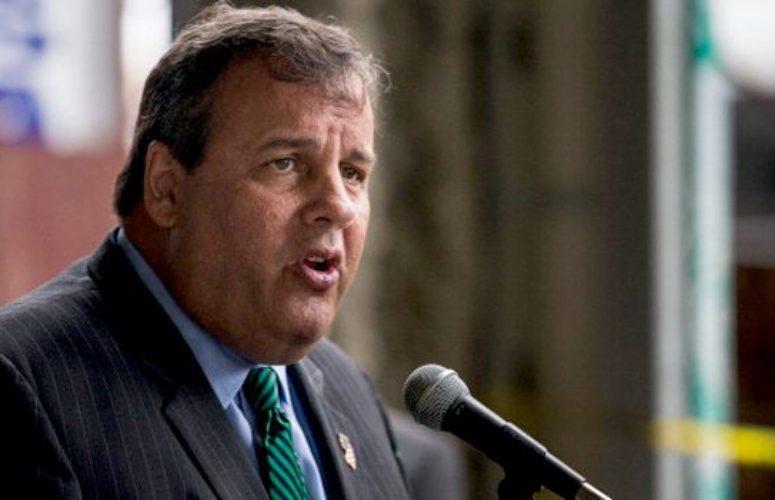
Governor Christie Announces Final Pension and Health Benefit Study Commission Report Calling for Additional Reforms
On Dec 6, 2017Governor Chris Christie announced the New Jersey Pension and Health Benefit Study Commission, a bipartisan panel appointed by the Governor in 2014, issued its fourth and final report on reforming public-sector pension and health benefit costs.
The Commission’s report recognized the Christie Administration’s significant achievements to reform New Jersey’s public pension system to bring fairness, affordability, and sustainability to health benefits coverage for taxpayers, public employees, and retirees. The Commission also noted that major recommendations in its earlier report requiring legislation have yet to be acted on, and recommended additional actions to avoid threatening other State budget priorities.
“My administration faced a failing and neglected pension system and out of control public employee health benefits when I took office eight years ago,” Governor Christie said. “I worked with the Democratic legislature to make significant reforms and saved the system from imminent collapse and New Jersey taxpayers $120 billion. We funded the public pension system nearly three times more than all other governors combined in the past 22 years.
“Still, the Commission’s report makes clear the commitment to pursue aggressive reforms must continue to prevent public employee benefits costs from overtaking the State’s other budget priorities, including education, healthcare, and public safety. The risk to these basic government priorities is great if more cost saving measures are not adopted with urgency. I thank the Commission for its work and believe that its recommendations, if followed, will ensure New Jersey stays on the right course toward affordability and sustainability.”
The Commission’s report highlighted the July 2017 bipartisan enactment of Governor Christie’s proposed Lottery Enterprise Contribution Act as a key measure that has reduced the system’s liability and increased its funding. The lottery initiative has already resulted in a $13.5 billion reduction in the system’s unfunded liability and will provide $37 billion in funding over 30 years. In addition, the report also cited the Christie Administration’s record-breaking pension payments. Those payments have totaled $8.8 billion over eight years, nearly three times the total contributions of every other governor combined since 1995.
“The current pace of reform does too little too slowly to save the pensions and the State’s fiscal health,” said Thomas Healey, speaking for the Commission.
“The State can’t do the things it needs to do if it has to spend 26 percent of the budget on benefits,” Commission member Tom Byrne said, stressing the need for greater control over benefits costs. “The relatively low-hanging revenues and savings have already been taken while funding only a small part of the needed increase in pension contributions. We have to find a way to bring costs down, but do so in a way that ensures employees and retirees receive all of the pension benefits earned to date and a fair package of benefits going forward. Nobody knows what would happen if the pension plans run out of money, and it would be irresponsible to find out.”
The Report also notes that last year, the State Health Benefits Program (SHBP) Plan Design Committee enacted reasonable, cost-saving changes to its healthcare plan which have reduced premium increases two consecutive years. That reform package included changes to the prescription drug plan and reduced reimbursement for out-of-network services to the State’s generous and costly employee and retiree health benefits. The Report urges even more far-reaching health benefits reforms.
Without immediate, additional reforms, the Commission warns that the pension and health benefits’ share of the State budget is projected to increase to 26 percent or $10.7 billion by 2023. The Commission’s principle recommendations include:
- Reform State health benefits in a manner the Commission’s health benefits consultant, McKinsey & Co., confirmed would have reduced State 2016 costs by $1.4 billion while preserving an overall package of health benefits more generous than those in the private sector;
- Establish that future retirement benefits are to be earned through a modern, sustainable cash-balance program, with provisions for additional transition funding for certain employees for whom this exchange would occur in mid-career;
- Reform local health benefits costs in the same manner as State employee benefits. This would have reduced local 2016 health benefits costs by $2.7 billion;
- Keep benefits costs below 15 percent of the State budget, a figure the Commission believes marks a threshold for sustainable benefits funding; and
- Commit the State, by constitutional amendment, to set a payment schedule intended to stabilize, over a 30-year period, funding of the State pension benefits earned to that date. Crucially, this commitment should only be made in correlation with reforms making benefits costs more affordable to New Jersey’s taxpayers.
Related Articles:






